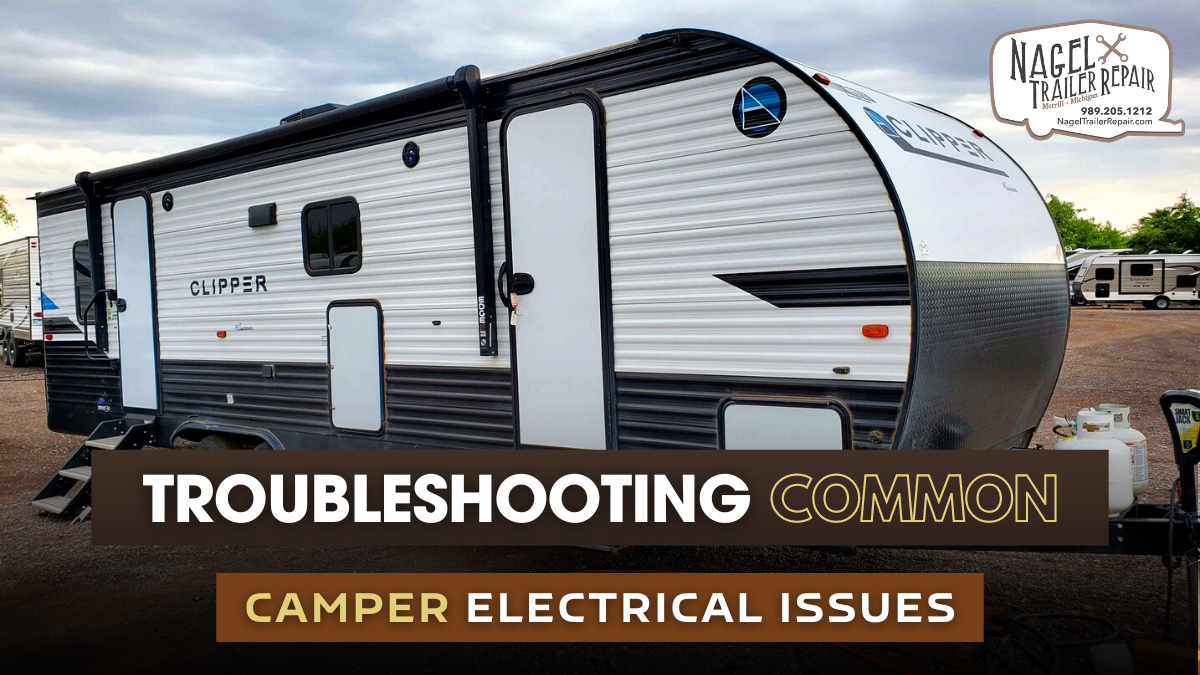Electrical issues can be among the most frustrating problems to deal with when it comes to camper maintenance. Whether you're embarking on a cross-country adventure or simply enjoying a weekend getaway, electrical problems can quickly put a damper on your plans. In this guide, we'll delve into some of the most common camper electrical issues and provide practical troubleshooting tips to help you get back on the road with confidence.
Identifying the Problem:
The first step in troubleshooting camper electrical issues is identifying the problem. Symptoms such as flickering lights, dead outlets, or malfunctioning appliances can indicate various underlying issues. Start by conducting a visual inspection of your camper's electrical system, checking for frayed wires, loose connections, or signs of damage.
Testing the Power Source:
One of the most common causes of camper electrical issues is a faulty power source. Begin by testing the shore power connection to ensure it's providing the proper voltage. If you're using a generator, check the fuel level and inspect the generator for any visible signs of damage. Additionally, verify that the circuit breakers in your camper's electrical panel haven't tripped and reset them if necessary.
Checking the Battery:
Another potential culprit for electrical problems in campers is the battery. Inspect the battery terminals for corrosion and ensure they're securely connected. Use a multimeter to test the battery voltage and verify that it's within the recommended range. If the battery voltage is low, recharge or replace the battery as needed.
Inspecting Wiring and Connections:
Faulty wiring and loose connections can lead to a wide range of electrical issues in campers. Carefully inspect all wiring for signs of wear, damage, or rodent infestation. Tighten any loose connections and replace damaged wiring as necessary. Pay close attention to areas where wiring passes through walls or floors, as these areas are prone to damage over time.
Testing Appliances and Devices:
If you're experiencing electrical problems with specific appliances or devices in your camper, test each one individually to identify the source of the issue. Plug the appliance into a known working outlet or use a portable power source to determine if the problem lies with the appliance itself or the camper's electrical system. Replace any malfunctioning appliances or devices as needed.
Addressing Grounding Issues:
Proper grounding is essential for the safe operation of camper electrical systems. If you're experiencing electrical shocks or other grounding-related issues, inspect the grounding connections in your camper. Ensure that all grounding wires are securely connected and that there are no breaks or corrosion present. If necessary, consult a professional electrician to address grounding issues.
Preventing Future Problems:
Once you've resolved the current electrical issues in your camper, take steps to prevent future problems from occurring. Regularly inspect your camper's electrical system for signs of wear or damage and address any issues promptly. Avoid overloading circuits and be mindful of power consumption to prevent strain on your camper's electrical system.
Conclusion:
In conclusion, addressing common camper electrical issues is crucial for ensuring a safe and enjoyable travel experience. By systematically troubleshooting problems with the power source, battery, wiring, appliances, and grounding, RV owners can quickly diagnose and resolve issues. Regular maintenance and proactive measures can help prevent future electrical problems, allowing travelers to embark on adventures with confidence. For RV camper repair in Michigan, it's essential to seek assistance from experienced professionals who understand the unique electrical systems of campers and can provide reliable solutions to keep your travels smooth and worry-free.

